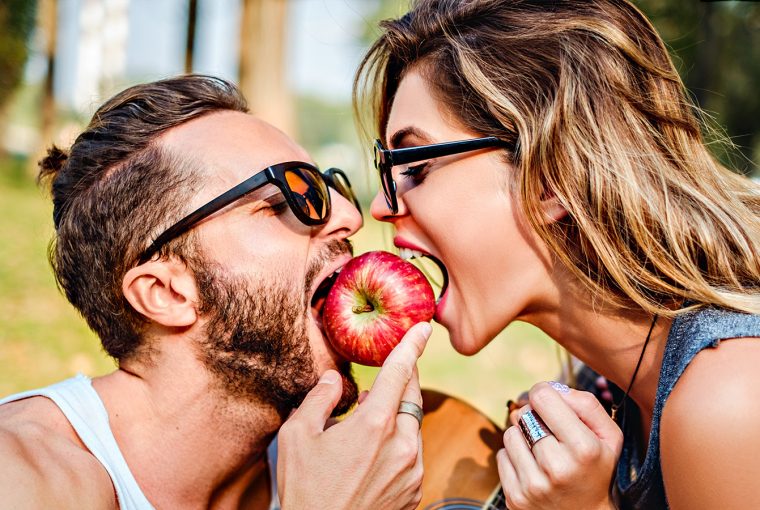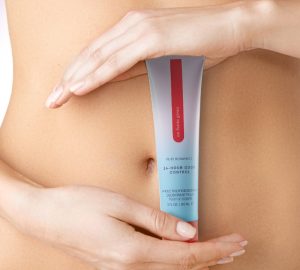Have you ever wondered if your diet could help or hurt your vaginal health? Vaginal health is essential for overall well-being. Whether you are trying to get pregnant, have an ideal vaginal pH balance, or just want to keep your vagina healthy and strong, there are many ways nutrition can support your vaginal health.
To help you get the most out of your dietary choices, we’ve put together a list of foods that are good for your vaginal health and foods to avoid if you want to maintain strong vaginal health.
**Different people respond differently to food, so it’s helpful to speak with a doctor or nutritionist before making drastic changes to your diet.
General rules
Avoid processed foods, artificial additives, and sugary drinks. All of these can have a negative impact on your vaginal health. Consumption of excess sugar can decimate the microbiome, the collection of bacteria, fungi, and viruses that naturally live on our bodies, leading to vaginal yeast infections or bacterial infections. Overindulging on processed foods may also compromise your immune system, provoke vaginal dryness, or cause a pH imbalance, which can create an environment for bacterial overgrowth.
Minimally processed whole plant foods that are rich in probiotics, prebiotics and other nutrients are great for vaginal health because they help to keep your vagina healthy and strong. These foods can help to improve your sex life, reduce infection risk, and boost your energy levels.
Probiotics are foods and supplements that contain active microorganisms intended to sustain or augment the levels of ‘friendly’ bacteria in our body. Prebiotics, on the other hand are high-fiber foods that act as food for human microbiome, feeding the beneficial bacteria in our bodies.
Probiotics are good for keeping your vaginal pH balanced and promoting the growth of good bacteria. Since prebiotics help to feed probiotics, you need to have sources of both in your diet to build a healthy vaginal ecosystem.
Luckily the same foods that are great for vaginal health are great for the entire body.
Vagina-friendly food
It would be impossible to list every food but here are some examples of common foods that are great for vaginal health:
Yogurt: This contains probiotics known to support a healthy vagina by improving its pH balance and promoting the growth of healthy bacteria.
Fermented foods: This includes foods like kefir, sauerkraut, kimchi, kombucha. These contain both probiotics and prebiotics.
Avocados: Another reason to eat that avocado toast! Avocadoes contain healthy fats that support healthy naturally lubricated vaginal walls.
Sweet potatoes: These root vegetables contain beta-carotene, which supports uterine muscles.
Dark leafy greens: Kale, spinach, arugula, bok choy, and tons of other healthy greens contain vitamins A and C. In turn, this supports vaginal immunity, fights inflammation, and supports collagen production.
Whole grains: Wheat, corn, oats, barley and quinoa are just some of the whole grains that contain fiber/prebiotics and antioxidants. These encourage blood sugar control and support pH balance.
Beans: This “magical fruit” contains high fiber\prebiotics and minerals like zinc. All of this helps maintain balanced blood sugar, discourages growth of unfriendly bacteria, and strengthens vaginal walls by supporting collagen production.
Berries: Strawberries, blueberries, raspberries, watermelon (surprise! it’s a berry), and more contain antioxidants and zinc, which fight inflammation and vaginal dryness.
Almonds: This trusty snack contains B vitamins and calcium, which promote balanced estrogen levels.
Apples: There’s a reason an apple a day keeps the doctor away. This fruit contains probiotics and polyphenols, which encourage healthy blood flow to vagina.
Cranberry Juice: Fight infection with this juice that contains antioxidants that also discourages bacterial overgrowth.
Green tea: Relax with a cup of tea that contains catechins, which fight infection.
Eating for vaginal health doesn’t have to be complicated. Probiotics and prebiotics have a huge role in vaginal health. Probiotics can help to restore the good bacteria in the vagina, while prebiotics provide fuel for these beneficial bacteria to grow. If you are looking to improve your vaginal health, incorporating these foods into your diet is a great place to start. Once you have a solid foundation of good vaginal health, it will be easier to maintain over time. Stick with recognizable natural, fiber rich foods and eat processed food in moderation. Your entire body will thank you.









